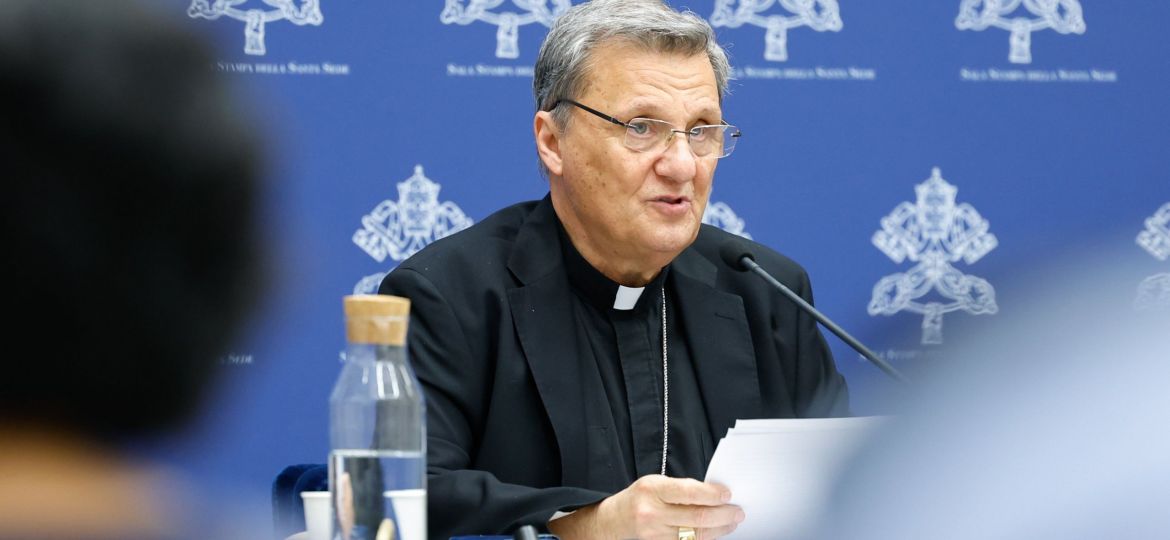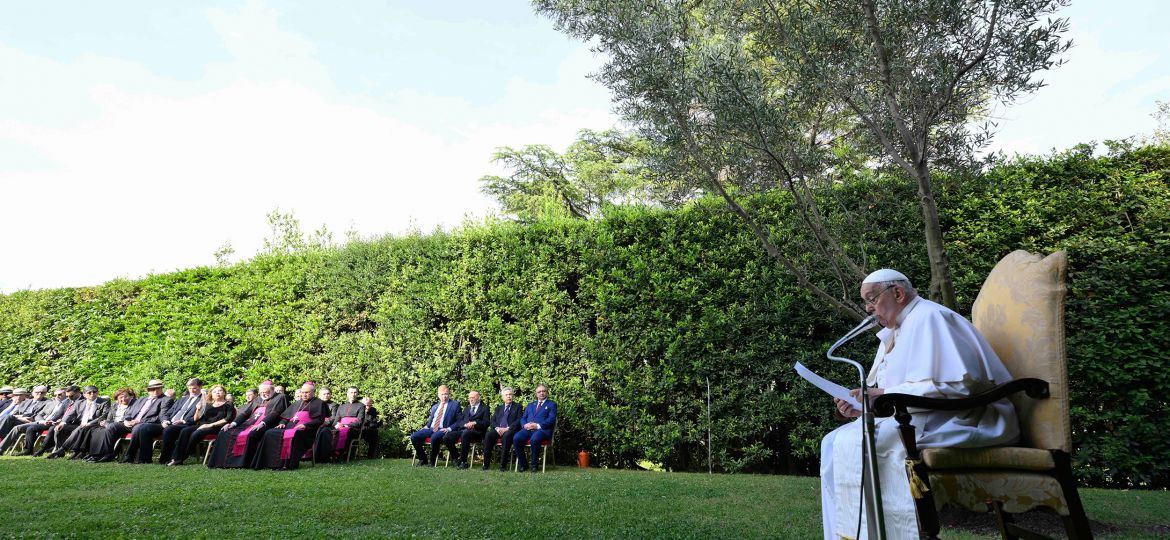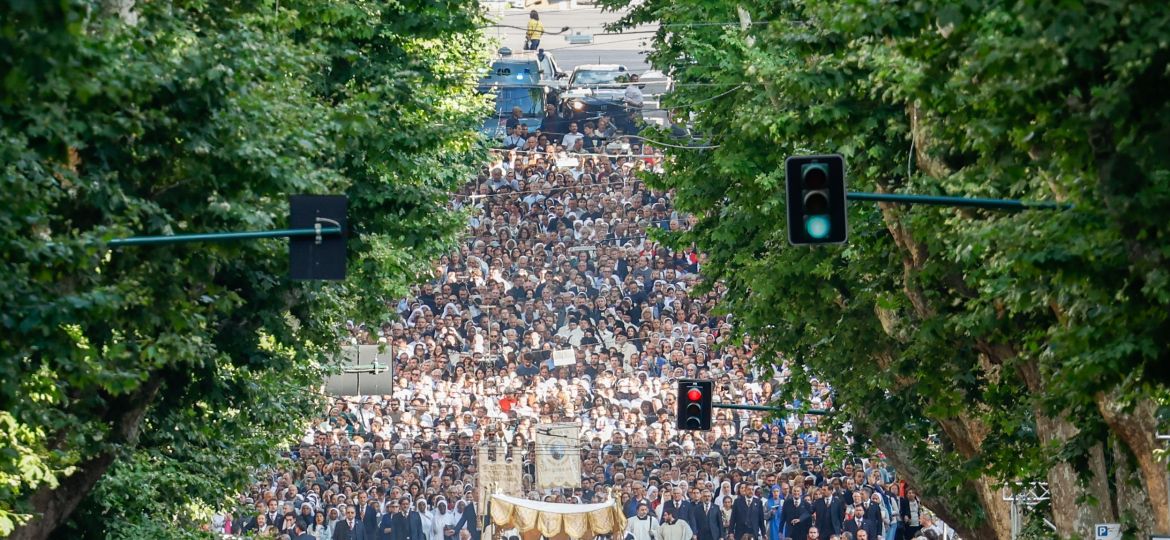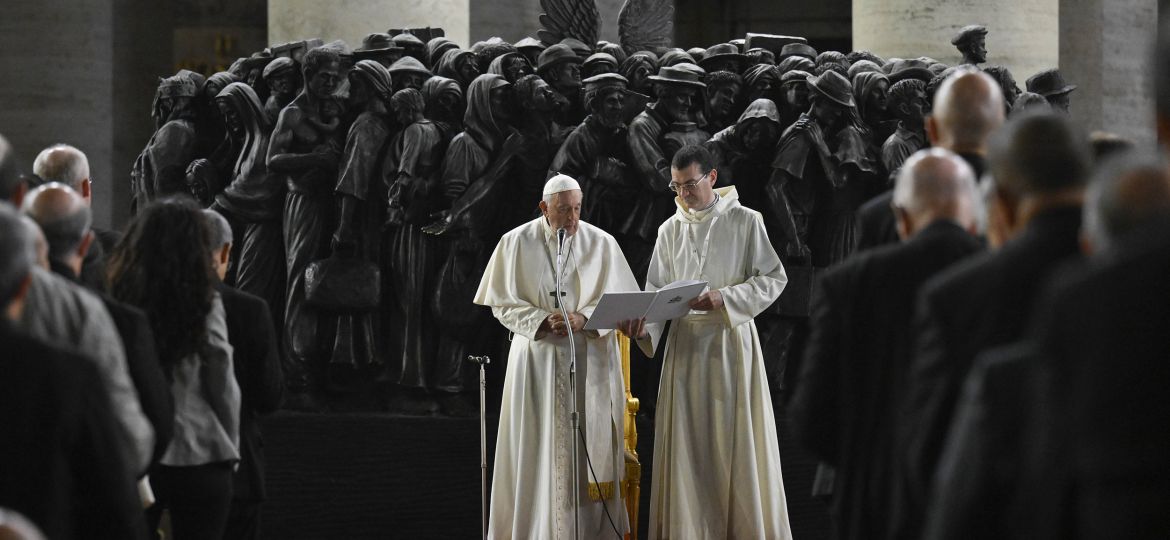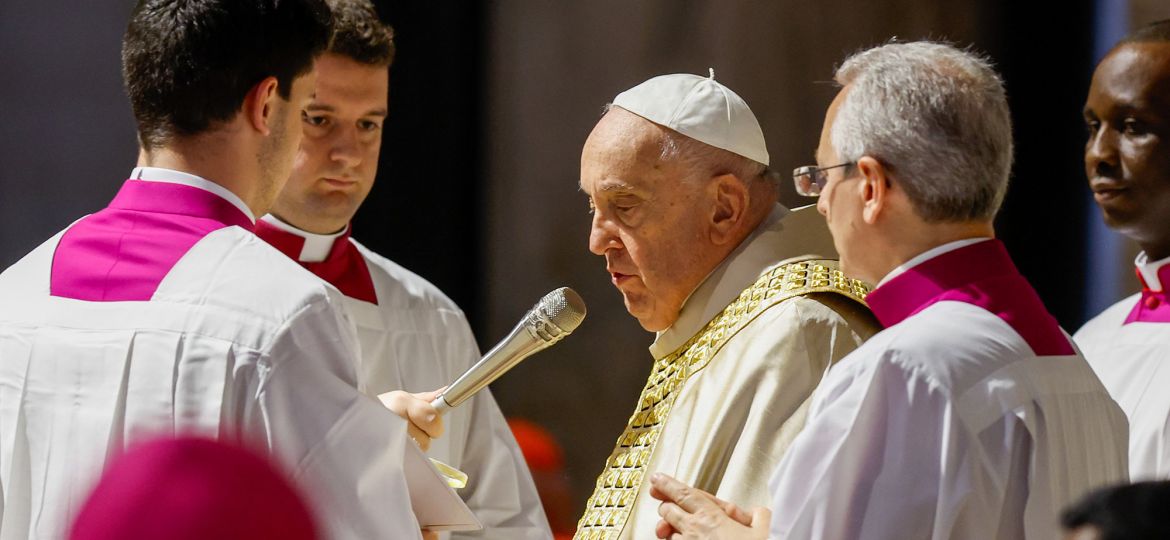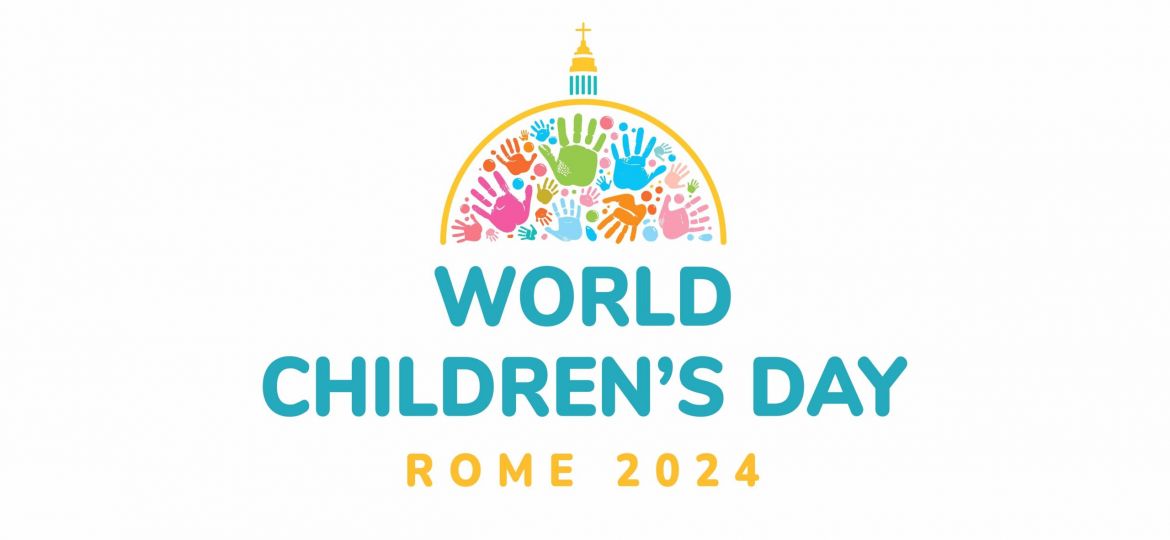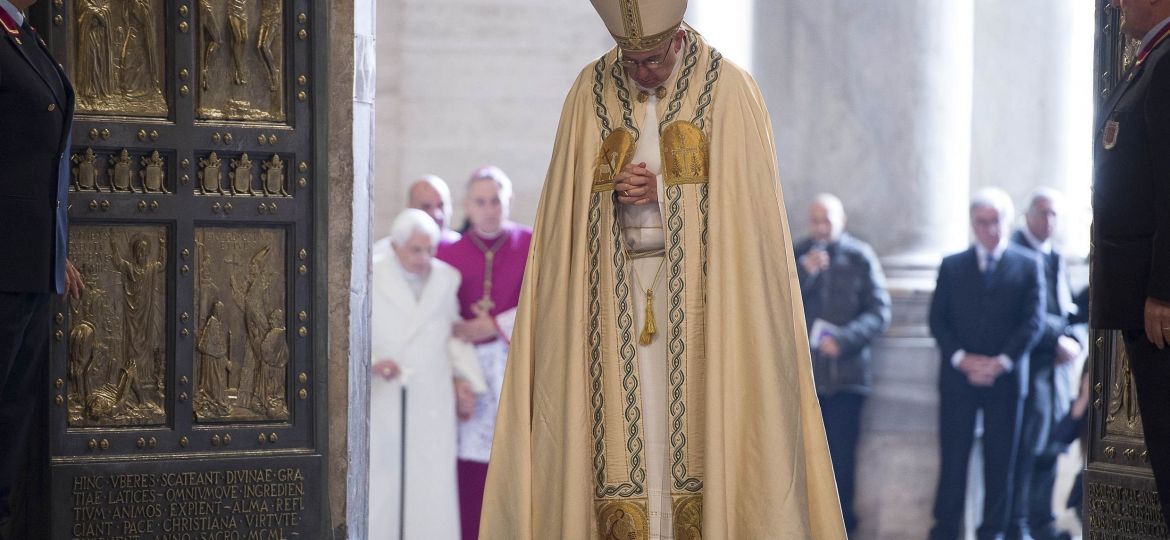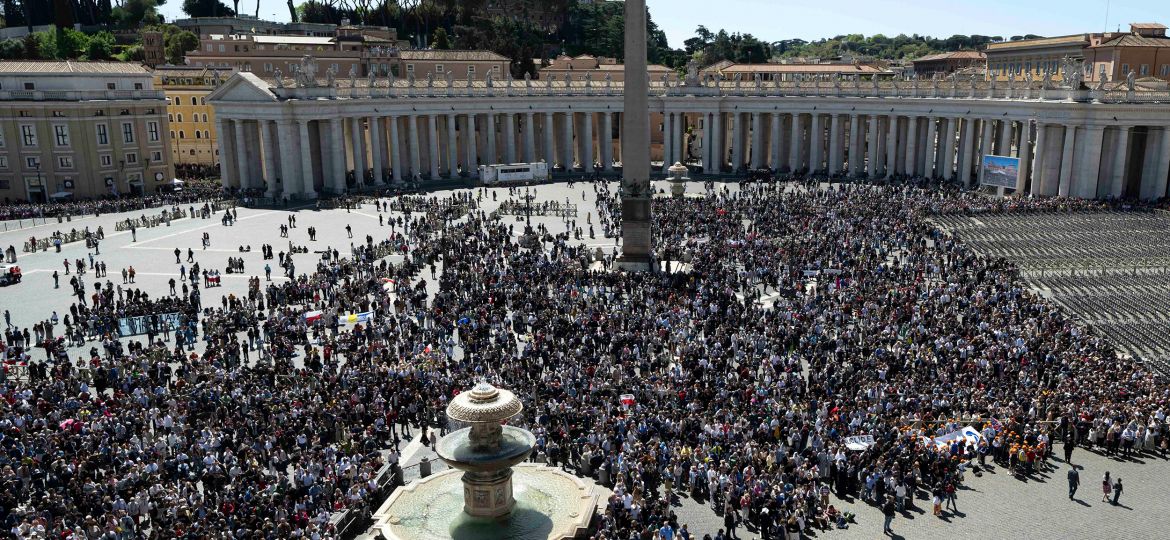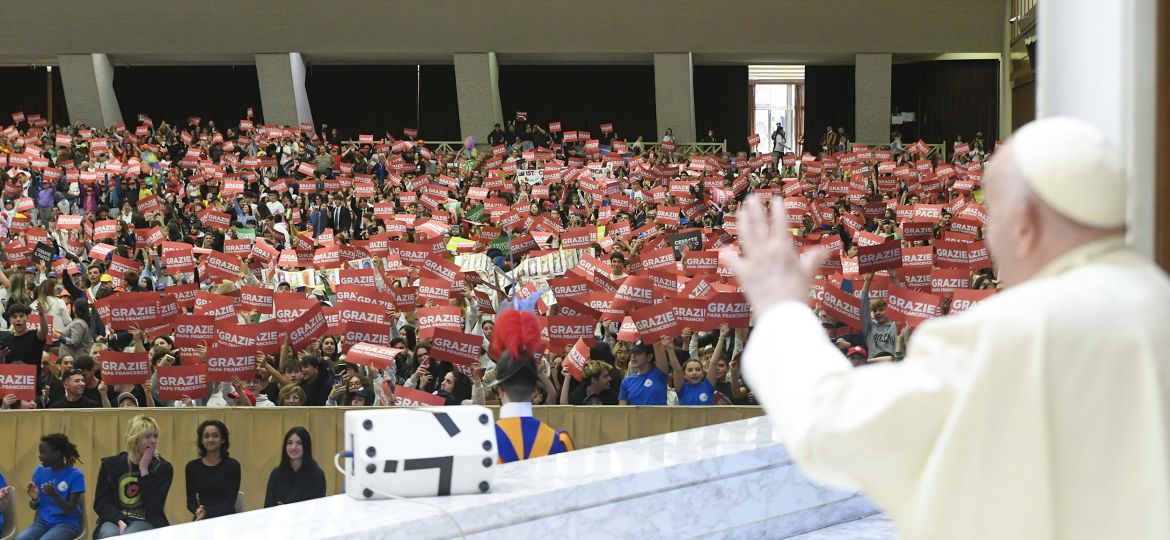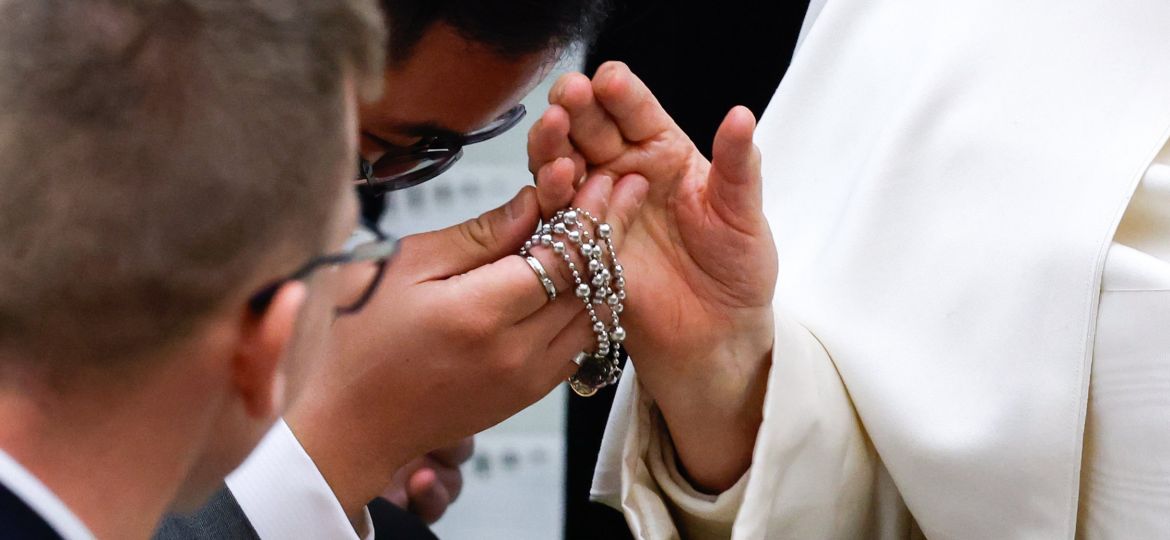As preparations continue for the second assembly of the Synod of Bishops on synodality, enthusiasm for greater involvement in the life and mission of the church is accompanied by “confusion, worry or anxiety” on the part of some Catholics, the secretary-general of the synod said.
Sitting in the Vatican Gardens with the dome of St. Peter’s Basilica as a backdrop, Pope Francis told cardinals and diplomats, including the ambassadors of Israel and Palestine, “Every day I pray that this war will finally end.”
When Catholics carry the Eucharist through the streets, “we are not doing this to show off or to flaunt our faith” but to invite others to share in the life that Jesus gives by making himself a gift, Pope Francis said.
Christians cannot share a vision that sees migrants as threats to society or as a cause for fear, Pope Francis said in a video meditation.
Pope Francis’ document proclaiming the Holy Year 2025 draws special attention to the ecumenical possibilities of the celebration, especially since the jubilee coincides with celebrations of the 1,700th anniversary of the Council of Nicaea.
The Vatican is expecting some 70,000 children between the ages of 5 and 12 and their chaperones to fill Rome’s Olympic Stadium for the opening events of the first World Children’s Day May 25 and to join Pope Francis for Mass in St. Peter’s Square the next morning.
For more than 700 years, the Catholic Church has celebrated “jubilee” or “holy” years as special times to renew people’s faith and experience God’s forgiveness, particularly by going on pilgrimage.
When Jesus called himself the “good shepherd,” he was telling people not only that he was their guide, but that they were important to him and “that he thinks of each of us as the love of his life,” Pope Francis said.
Peace can spread and grow from “small seeds” like including someone who is left out of an activity, showing concern for someone who is struggling, picking up some litter and praying for God’s help, Pope Francis told Italian schoolchildren.
Though the global situation risks plunging people into pessimism, Christians are called to pursue their vocation of becoming “men and women of hope,” Pope Francis said. “As individuals and as communities, amid the variety of charisms and ministries, all of us are called to embody and communicate the Gospel message of hope in a world marked by epochal challenges,” the pope wrote in his message for World Day of Prayer for Vocations April 21.

